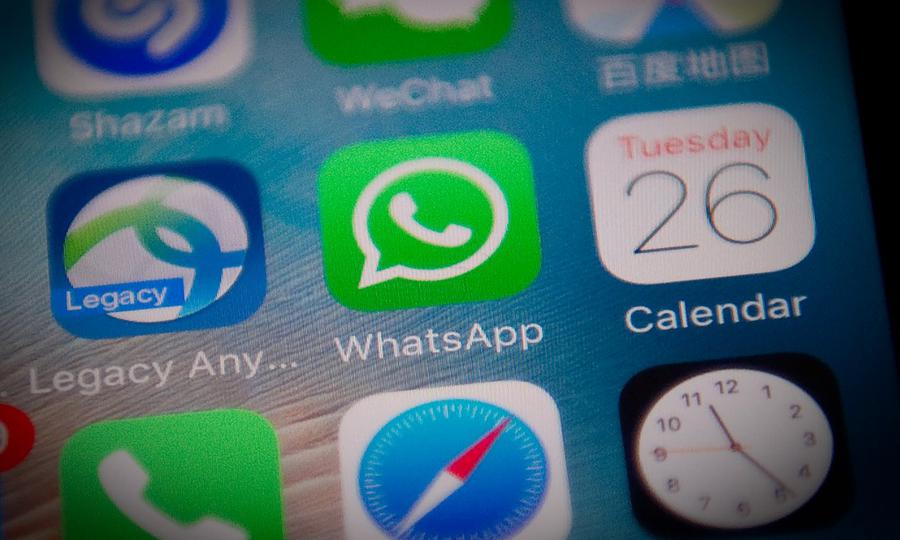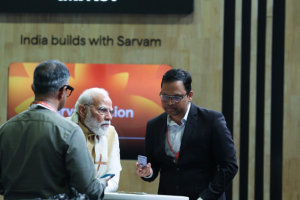The American social media giant claims New Delhi’s move is an attack on free speech and privacy but Indian government chiefs argue the aim is to crack down on fake news and online hate
(AF) WhatsApp is suing the Indian government over its new, stricter IT rules that came into force this week requiring messaging services to aid the authorities in identifying the ‘originator’ of messages.
“Requiring messaging apps to ‘trace’ chats is the equivalent of asking us to keep a fingerprint of every single message sent on WhatsApp, which would break end-to-end encryption and fundamentally undermines people’s right to privacy,” said a WhatsApp official.
India announced new media rules in February that mandated large social media platforms – those with over 5 million users – like Twitter, Facebook, Instagram, Twitter and WhatsApp to remove any content flagged by authorities within 36 hours.
Also on AF: Taiwan’s Covid crisis could worsen worldwide chip shortage
The rules also require social media platforms to incorporate identification of the “first originator” of information that undermines the sovereignty of India, security of the state or public order.
Aiming to make social media companies more accountable and responsible for the content on their platform, they have been ordered to publish a monthly compliance report disclosing details of complaints received and action taken.
But WhatsApp, according to Reuters, is protesting over the new rules on the grounds that, for one, they violate privacy rights enshrined in India’s constitution.
Besides, the rules are impractical as well, they say, since messages are end-to-end encrypted, and breaking them would violate the platform’s contract with their users.
DATA ACCESSS
“Civil society and technical experts around the world have consistently argued that a requirement to ‘trace’ private messages would break end-to-end encryption and lead to real abuse,” a WhatsApp spokesman said. “WhatsApp is committed to protecting the privacy of people’s personal messages and we will continue to do all we can within the laws of India to do so.”
WhatsApp also says that it does not have access to users’ data since it cannot store messages owing to the end-to-end encryption that allows users to communicate securely and privately without allowing others to access the messages.
WhatsApp is estimated to have over 400 million users in India.
But India argues that the new guidelines provide a grievance redressal system for over the top (OTT) and digital portals in the country.
MEDIA MISUSE
“It is very important for the users of social media to have a forum to raise their grievance against the misuse of social media,” the IT minister Ravi Shankar Prasad said while announcing the new rules in February.
He added that there were constant complaints against social media platforms over fake and unlawful content.
The new rules, however, are also a part of the growing discord between the biggest tech companies and governments around the world over control of new media.
Earlier this month, for instance, Germany called WhatsApp’s new terms of service “illegal”, as Hamburg Commissioner for Data Protection and Freedom of Information, the data protection regulator, alleged that WhatsApp is forcing people to accept a new privacy policy even though it has said that it would not delete the account of users.
APP UPDATE
“Consent is not freely given, since WhatsApp demands acceptance of the new provisions as a condition for the continued use of the service’s functionalities,” it said. But WhatsApp said that the data regulator has misunderstood the purpose and effect of WhatsApp’s update.
Australia and the European Union, too, have recently drafted or passed laws to limit the power of Google, Facebook and other companies over online speech.
And, after fining its internet giant Alibaba $2.75 billion, China’s State Administration for Market Regulation in mid-April warned nearly three dozen internet “platform” companies to rectify anti-competitive practices in May.
In particular, the regulator warned against the practice of forcing vendors to operate on only one platform, a tactic known as “choose one from two”.
GOVERNMENT ENGAGEMENT
WhatsApp parent Facebook, though, said on Tuesday it is working to implement operational processes and aims to comply with that. The provisions of the IT rules come into effect from Wednesday. The social media giant added that it continues to discuss a few of the issues which need more engagement with the government.
On Tuesday, Facebook said it aims to comply with the provisions of India’s new IT rules and will continue to discuss the few issues “which need more engagement”.
Facebook said it remained committed to people’s ability to freely and safely express themselves on their platform, the spokesperson added.
A Google spokesperson also said that the company has consistently invested in significant product changes to comply with local laws in the jurisdictions it operates in.
LOCAL LAWS
“We respect India’s legislative process and have a long history of responding to government requests to remove content where the content violates the local law or our product policies. We have consistently invested in significant product changes, resources and personnel to ensure that we’re combating illegal content in an effective and fair way, and in order to comply with local laws in the jurisdictions that we operate in,” a Google spokesperson said on Tuesday.
“We realise that our work in keeping our platforms secure is never done and we will continue to refine our existing approaches, and evolve our policies and be as transparent as possible about how we make decisions,” the spokesperson said.
Its statement covers all its platforms, including YouTube.
But WhatsApp users who have not accepted the new terms of service are reportedly facing difficulties in accessing the calling feature, although the messaging service in one of its FAQs has noted that it will not delete the accounts of users who do not accept the new terms of service by the May 15 deadline but will limit its functionalities like accessing the chat list and receiving calls.
TARGETED ADVERTISING
WhatsApp has also said that messages between personal accounts will remain end-to-end encrypted while only business accounts will be accessed for targeted advertising.
Other internet majors, however, were yet to meet the requirements at the time of writing, risking a ban.
Nevertheless, according to digital rights activist and MediaNama founder Nikhil Pahwa, users of those services need not fear an immediate ban because the government knows that the new rules are “unconstitutional” and would not want to give them a reason to go to court as well.
Industry sources also expect the Ministry of Electronics and IT to relent and work a way out of the impasse.
- With reporting by Reuters
Read more:
India demands removal of posts that say “Indian variant” of Covid
New Indian rules put Facebook, WhatsApp, Netflix in tough spot
























